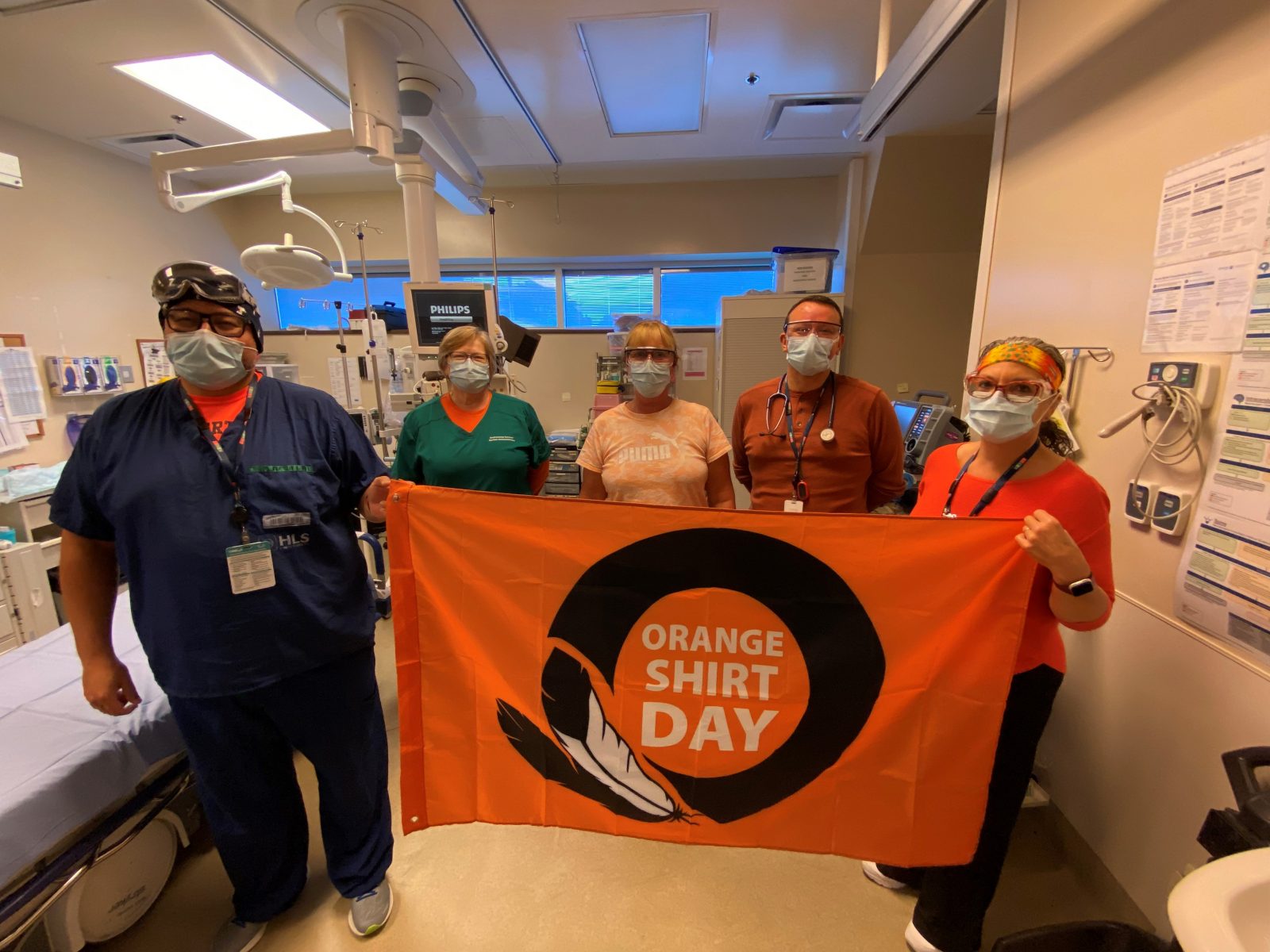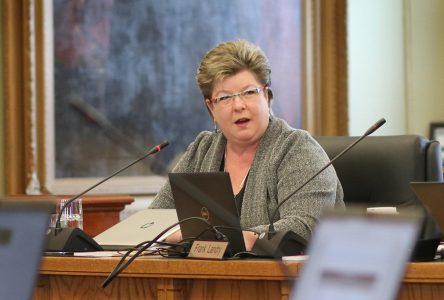To raise awareness and honour the victims and survivors of residential schools, Cornwall Community Hospital (CCH) is observing the National Day for Truth and Reconciliation on September 30, 2021 by asking staff and physicians to participate in Orange Shirt Day.
An orange flag has also been raised at half-mast on the hospital grounds and educational resources on the history and injustices faced by Indigenous communities have been shared with staff.
Orange Shirt Day, also observed on September 30, originates from a story told by residential school survivor Phyllis (Jack) Webstad of her first day at residential school when her new orange shirt, bought by her grandmother, was taken from her as a six-year-old girl. It is now a symbol of the stripping away of culture, freedom and self-esteem experienced by Indigenous children over generations.
“Today we wear orange in recognition of the devastating impact that residential schools had on our Indigenous children and communities, and also to affirm our commitment that everyone around us matters. Marking this day is an important step towards reconciliation, and allows us to learn and reflect on the harm caused by residential schools to First Nations,” says Jeanette Despatie, President and CEO.
Staff have also been asked to reflect on what Orange Shirt Day means to them by writing their answers on paper and taking a picture.
Dr. Lorne Scharf, Chief of Staff, says “to me, Orange Shirt Day is about a community celebrating resilience and honouring their children. It’s about all Canadians learning about the history of residential schools.”
People are encouraged to visit CCH on Facebook to see more responses from staff and physicians: www.facebook.com/CornwallCommunityHospital.
CCH proudly provides a full range of acute inpatient, outpatient and community mental health services to a catchment area of over 100,000 people in Eastern Ontario, which includes the Mohawk Community of Akwesasne.



